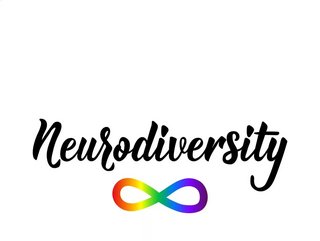Why a neurodiverse workforce should become the norm in tech

As awareness builds around the positive impact of neurodiversity in the workplace, organisations should consider how they can embrace diversity.
For diversity to become the norm in all businesses, organisations need to understand the positive impact it can deliver because it is not only the right thing to do, it is good for business. However, neurodiversity is still an area that is often neglected and overlooked in cybersecurity recruitment and the wider technology sector.
Cybersecurity Ventures estimates that global spending on cybersecurity products and services will continue its stratospheric growth and exceed $1 trillion by 2021. At this pace of growth, approximately 3.5 million cybersecurity jobs would currently go unfilled. This projected shortage will leave companies in a rush to fill positions as soon as possible —which is another reason why organisations should be looking to bridge the skills gap and utilise the neurodiversity talent pool.
However, most organisations focus on the challenges that are often associated with building neurodiversity in the workplace, rather than on the positive outcomes that neurodiverse employees can enable. Neurodiverse people have specialised skills that are vital in the digital era, including high levels of creativity or exceptional levels of concentration or logic, and they can provide unique perspectives in problem-solving tasks. Neurodiverse people can have a unique way of thinking when it comes to reasoning, identifying patterns and evaluating possibilities when making decisions.
By creating a workforce that includes neurodiverse people, businesses can achieve far more. For successful outcomes, organisations can invest in specific equipment such as headphones that will help people with neurodiversity to think more clearly. Alternatively, businesses can provide quiet places and flexible work hours so that neurodiverse people are better able to provide full attention to the task at hand.
It can be a challenge for neurodiverse people to excel at roles in many companies. A recent study found that 32 per cent of UK employees said their companies did not offer additional support or assistance for those with neurodiverse backgrounds.
Organisations can address this issue by establishing programmes that help to train people with neurodiversity and offer support for fulfilling their potential. Existing programmes such as DXC’s Dandelion Program in Australia (which is designed to build valuable IT skill and careers for people with autism and the companies partnership with the National Autistic Society in the UK, can help neurodiverse people to pursue digital, IT and cybersecurity jobs through a supported internship alongside people – both internal and external – that are able to coach candidates and advise employers. This helps businesses to benefit from the skills of a neurodiverse workforce, whilst giving those individuals the support they need to thrive and contribute to the fullest.
This article was contributed by Mark Hughes, Senior VP and GM of Security, DXC Technology






